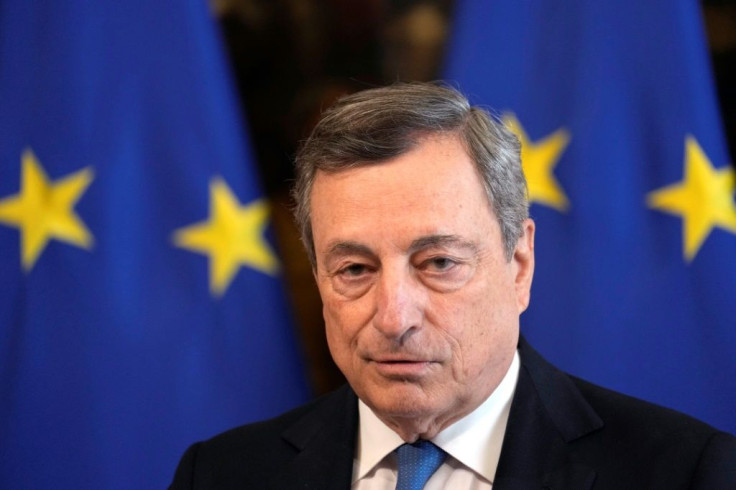Italy's Draghi Presses Reform Despite Opposition
Italian Prime Minister Mario Draghi is a man on a mission, determined to force through structural reforms long sought by Brussels in return for EU recovery funds -- despite opposition at home.
A cabinet meeting on tax reform this week was boycotted by members of Matteo Salvini's far-right League party, which is part of the national unity government Draghi has led since February.
The League had suffered a rout in local elections on Sunday and Monday, including in Salvini's home town of Milan.
Salvini said he could not give the government a "blank cheque" on tax reform, as "in a year's time, Draghi will no longer be prime minister, but there will be someone who taxes the air that we breathe".
But the threatened crisis at the top of the eurozone's third-largest economy never materialised, diffused by a tete-a-tete between Draghi and Salvini.
Meanwhile, the premier made clear nothing would deter him.
"The government is moving forward, government action cannot follow the electoral calendar," he told reporters after an EU summit on Wednesday.
The former European Central bank chief was called in by Italy's president to lead the country after the previous government collapsed in the middle of the economic and health crisis caused by the Covid-19 pandemic.
Draghi made it his priority to secure almost 200 billion euros in grants and loans allocated to Italy as part of the EU's post-virus fund -- and drive through the reforms Brussels demands in return.

"We must continue the calendar negotiated with the European Commission," he said this week at the summit in Slovenia.
At the cabinet meeting, government ministers agreed the broad lines of tax reform and plans to tackle tax evasion, which is estimated to cost Italy around 100 billion euros a year.
The reform that rankled the League was of the land registry, which Salvini fears could see an increase in property taxes.
It aims to regularise the situation of so-called "ghost houses" that have never been registered, of which there are estimated to be around one million.
However, Draghi committed after his talks with Salvini to "avoid any increase in the tax burden".
As with the judicial reforms passed by parliament last month, which aim to speed up Italy's notoriously tortuous legal system, the property reform is being pushed by Brussels.
In 2019, the European Commission warned that "land and property values... which serve as the basis for calculating property tax, are largely outdated".
But Draghi's reform would change nothing before 2026 and even after that, he promised that "nobody will pay more, nobody will pay less".
Another part of the reform plan, that would come into effect earlier, in 2022, is to ease the income tax burden on the middle classes.
Elsewhere, Draghi must also address the thorny issue of public tenders and pension reform, which risks bringing him again into conflict with Salvini.
A previous League government introduced a temporary measure to allow people to retire at 62 with 38 years of pension contributions, but it expires at the end of this year.
So far, however, Draghi has shown himself "willing and determined to push ahead without being beholden to any party," commented Wolfango Piccoli of the Teneo political consultancy.
© Copyright AFP 2024. All rights reserved.











